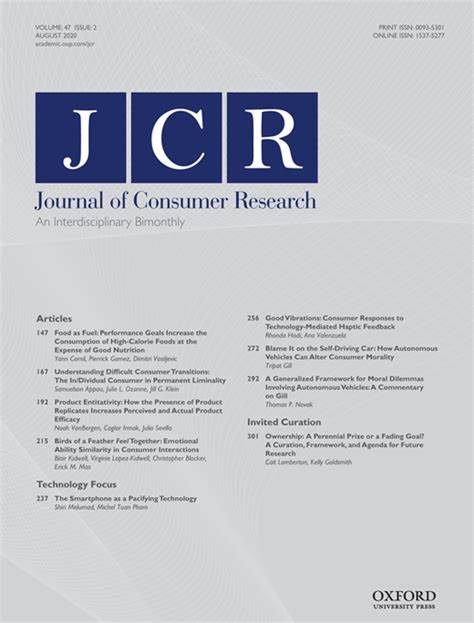Consumer Dirtwork: What Extraordinary Consumption Reveals about the Usefulness of Dirt
IF 6.4
1区 管理学
Q1 BUSINESS
引用次数: 0
Abstract
Societies create material, social, and moral boundaries that define who and what is dirty. “Dirt” encompasses literal and figurative things—objects, beings, ideas—that transgress these boundaries and thus are “out of place.” Previous research describing how consumers avoid and manage dirt assumes that dirt is aversive. The concept of consumer dirtwork emerged from our examination of self-described “dirtbag” wilderness consumers. Dirtwork reveals the potential usefulness of dirt. Instead of cleaning, dirtworkers redraw dirt boundaries, revealing resources they then work to capture. Boundary redrawing describes a continuum of adjustments to dirt boundaries, ranging from small shifts to complete inversions. Resourcing work describes the efforts required to capture the resources that are uncovered by boundary redrawing. Dirtwork results in challenges and rewards, and offers the possibility of continued dirtwork-resourced consumption. Dirtwork contributes by revealing the process wherein consumers make use of dirt, thus demonstrating the usefulness of dirt and fluidity of dirt boundaries. Dirtwork provides a useful lens for understanding consumer behaviors that do not aspire or cannot conform to socially-imposed cleanliness rules, including stigmatized, mundane, and extraordinary consumption. Dirtwork challenges assumptions that clean is good, socially-valuable, safe, and sustainable, and implicit associations of dirt with danger, stigma, and unsustainability.消费者的污垢工作:非同寻常的消费揭示了泥土的用途
社会创造了物质、社会和道德的界限,界定了谁和什么是肮脏的。"污秽 "包括字面意义上的和具象意义上的事物--物品、生命、观念--它们超越了这些界限,因此 "格格不入"。以往描述消费者如何避免和管理污垢的研究认为,污垢是令人厌恶的。通过对自称为 "土包子 "的荒野消费者的研究,我们提出了 "消费者污垢工作 "的概念。污垢工作揭示了污垢的潜在用途。污垢工作者不是进行清洁,而是重新划定污垢的边界,揭示他们努力捕捉的资源。边界重划描述了对泥土边界的一系列调整,从微小的移动到完全的颠倒。资源配置工作描述了为获取重新划定边界后发现的资源所需的努力。泥土工作带来了挑战和回报,并为持续的泥土工作资源消耗提供了可能性。泥土工作的贡献在于揭示了消费者利用泥土的过程,从而展示了泥土的有用性和泥土边界的流动性。肮脏工作为理解那些不渴望或无法遵守社会规定的清洁规则的消费行为,包括污名化消费、世俗消费和特殊消费,提供了一个有用的视角。肮脏工作挑战了 "干净就是好的"、"有社会价值的"、"安全的 "和 "可持续的 "等假设,也挑战了 "肮脏 "与 "危险"、"耻辱 "和 "不可持续 "的隐性联系。
本文章由计算机程序翻译,如有差异,请以英文原文为准。
求助全文
约1分钟内获得全文
求助全文
来源期刊

Journal of Consumer Research
BUSINESS-
CiteScore
12.00
自引率
9.70%
发文量
53
期刊介绍:
Journal of Consumer Research, established in 1974, is a reputable journal that publishes high-quality empirical, theoretical, and methodological papers on a wide range of consumer research topics. The primary objective of JCR is to contribute to the advancement of understanding consumer behavior and the practice of consumer research.
To be considered for publication in JCR, a paper must make a significant contribution to the existing body of knowledge in consumer research. It should aim to build upon, deepen, or challenge previous studies in the field of consumption, while providing both conceptual and empirical evidence to support its findings.
JCR prioritizes multidisciplinary perspectives, encouraging contributions from various disciplines, methodological approaches, theoretical frameworks, and substantive problem areas. The journal aims to cater to a diverse readership base by welcoming articles derived from different orientations and paradigms.
Overall, JCR is a valuable platform for scholars and researchers to share their work and contribute to the advancement of consumer research.
 求助内容:
求助内容: 应助结果提醒方式:
应助结果提醒方式:


